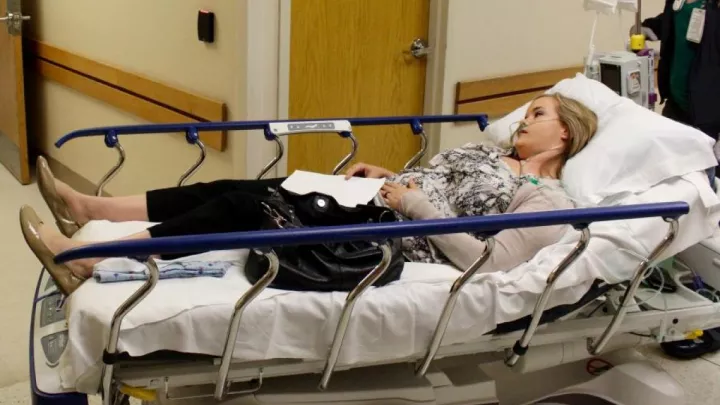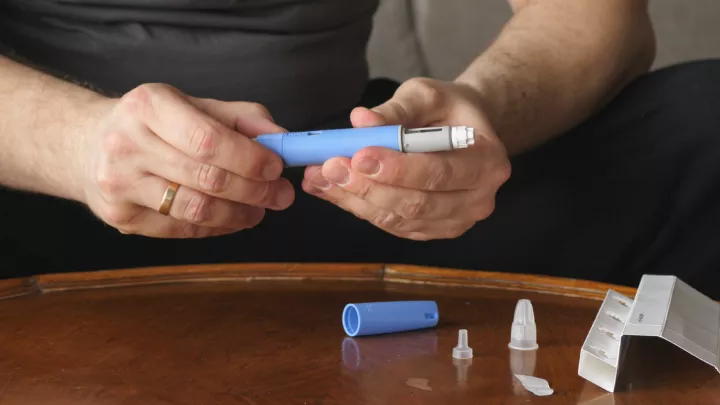7 stroke risk factors in women

Stroke is a serious medical condition that occurs when the blood supply to the brain is interrupted or reduced, leading to the death of brain cells. Women have unique risk factors for stroke that impact their overall lifetime stroke risk.
“Traditionally, it was thought that men were mostly having strokes, but recent studies challenge that,” says vascular neurologist Marco Gonzalez-Castellon, MD. “Women tend to have strokes differently than men. Men have strokes in their 50s and 60s, while women have a high risk of strokes when they’re young due to pregnancy-related issues and later in life. Overall, women have a higher lifelong stroke risk because they live longer than men.”
By identifying and comprehending their risk factors, women can take proactive steps to reduce their chances of experiencing a stroke.
1. Hypertension
High blood pressure is a primary risk factor for strokes in both men and women. However, women may face additional challenges due to hormonal fluctuations, such as in pregnancy and menopause. Because of this, women should:
- Regularly monitor blood pressure, with a goal below 130/80mm Hg.
- Consult with their healthcare provider to manage hypertension effectively.
- Make healthy lifestyle changes and take prescribed blood pressure medications.
2. Oral contraceptives and hormone replacement therapy
Certain hormonal medications, such as birth control pills and hormone replacement therapy, or HRT, can increase the risk of blood clots, which may lead to a stroke.
“Women using combined hormone contraceptives have almost double the risk of ischemic stroke and one-and-a-half times the risk of hemorrhagic stroke, while women on HRT have a higher risk of ischemic stroke,” Dr. Gonzalez-Castellon says. Ischemic stroke is due to the loss of blood supply to an area of the brain, while hemorrhagic stroke is due to bleeding in the brain by the rupture of a blood vessel.
Women using these medications should be aware of their potential risks and discuss alternative options with their healthcare provider, especially if they have other risk factors.
3. Pregnancy and postpartum period
Pregnancy and the postpartum period introduce unique physiological changes that can increase stroke risk. Conditions like high blood pressure, gestational diabetes and preeclampsia can lead to a stroke. Regular prenatal care, monitoring blood pressure, and managing other underlying conditions during and after pregnancy are crucial to minimize the risk.
4. Atrial fibrillation
Atrial fibrillation, or AFib, is an irregular heartbeat that can lead to blood clots, potentially causing a stroke. Women with AFib should work closely with their healthcare provider to manage the condition effectively, including medication, lifestyle modifications or medical procedures.
5. Age and menopause
As women age, their risk of stroke increases. The decline in estrogen levels during menopause can also be a contributing factor.
6. Lifestyle Factors
Unhealthy lifestyle habits can significantly contribute to stroke risk. Risk factors that can be modified include:
- Smoking
- Excessive alcohol consumption
- Poor diet
- Lack of physical activity
- Obesity
Healthy habits, such as regular exercise, a nutritious diet, stress reduction techniques, and avoiding harmful substances can significantly reduce the risk of stroke in women.
7. Chronic conditions
Chronic conditions that can increase the risk of stroke include:
- Diabetes
- Obesity
- High cholesterol
- Cardiovascular diseases
Women with these conditions should work closely with their healthcare providers, take prescribed treatments and work to adopt a healthy lifestyle. In addition to this, Dr. Gonzalez-Castellon stresses the importance of controlling high blood pressure.
“The main risk factor for stroke is high blood pressure, so going to the doctor and taking your medication is important, but you have to make sure you’re meeting the blood pressure goal of below 130 over 80,” he says.







